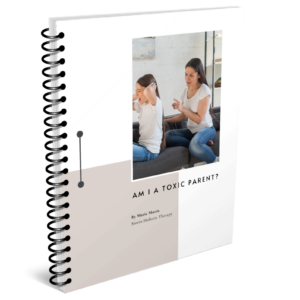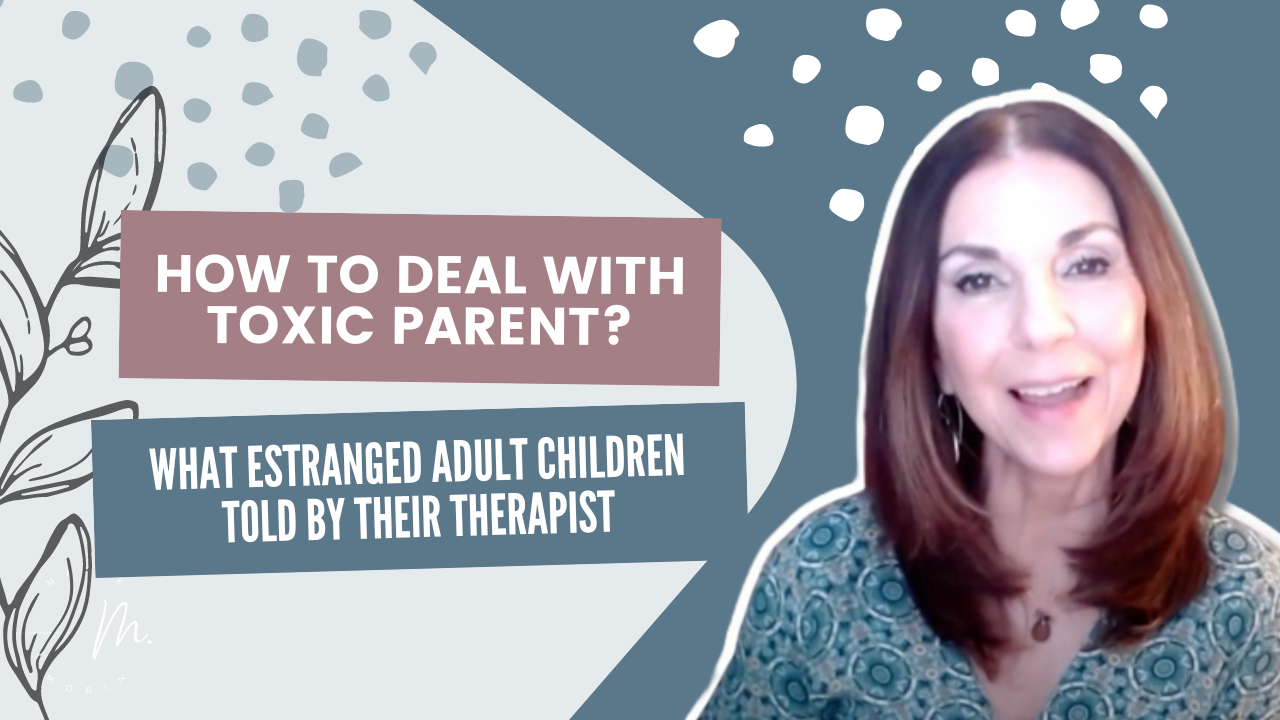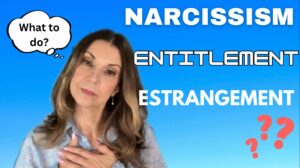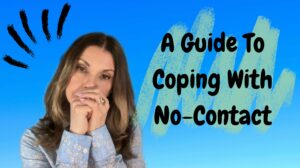If you are estranged from an adult child, you already know the uncertainty and challenge of the condition. Some parents can be physically cut off or emotionally separated.
Adult children can insist on no contact. Parents can feel anxious and bewildered about how they might ever reconcile with their adult child. When adult children describe their relationship as toxic, they may seek the help of a therapist. They are looking for help in managing their discomfort. Consider what they might feel and think to gain insight into your relationship. This article explores How To Deal With Toxic Parents -What Your Estranged Adult Children Are Told By Their Therapist.
Adult children who feel their parents are toxic go to therapy to find relief. Cutting off is an act of self-preservation from an impossible relationship filled with toxic behaviors. Estrangement is extremely painful for all parties involved.
Toxic Behaviors
Toxic behaviors are harmful and consistent. Controlling, manipulating, criticizing, blaming, and threatening are typical toxic behaviors. Toxic family members may also demean, disrespect the privacy of others, blame, and lack respect for one’s decisions and choices. In addition, angry outbursts, manipulation, and superior posturing can be traumatic.
Abuse can include toxic behaviors; however, abuse exerts control. Estrangement is emotionally and physically taxing for all parties. The experience of ambiguous loss causes complicated grief and chronic stress. Separation brings fluctuating emotions and stigmatized social contact. Broken family bonds can result in isolation, reduced social support, and vulnerability Research reports that family estrangement affects one’s mental and physical health.
What Adult Children Can Learn From Therapy
- The relationship is unsafe, and cutting off is necessary for self-preservation.
- Change your expectations of your parents and learn skills to respond and not react.
- To reduce anxiety about reconnecting or possible contact, set clear boundaries.
For example, if conversations are uncomfortable and emotionally charged, only accept communication via email or texts.
- Be persistent in setting limits.
- Focus on caring for yourself by deciding what you want from the relationship.
For example, do what feels best for you. If time with your parents harms you, it is acceptable not to see them or speak to them.
- Accept that you are not the cause of your parent’s behaviors. Parents can have their issues.
- Differentiate yourself from your parents and improve your sense of self
- Know yourself enough to know what triggers you and manage your reactions.
For example, tensions may be so intense that being around the parent causes anxiety. If a parent’s behaviors are toxic, learn your triggers so you can manage the distress of triggered emotions.
- Adult children have the power to say no by learning coping skills and boundaries.
They can grow strong enough to deal with their harmed emotions and find calm using skills to be less stressed.
- Decide to go no contact until they witness a significant change in their parents.
What You Should Know About Individual Therapy
Each therapist has their style and mode of treatment. During an initial intake session, the clinician will ask a series of questions, including symptoms, the presence of mental illness and addictions, family environment, and their perception of childhood and adolescence. Individuals seek the help of a professional for various reasons. Clients seek support, feel better, work through complicated relationships, and deal with challenging life circumstances.
Therapists learn to “meet their clients where they are at.” This means that therapy starts by validating the client’s present experience. Ethical therapists adhere to letting clients take control of the direction they choose to take and never cause intentional harm. Therapists aim to keep the client’s well-being and mental health as a priority, treating all people fairly.
Therapy explores early experiences with one’s family of origin that shape identity, one’s sense of self, and the ability to trust and feel safe. The client reports her concerns as the therapist listens nonjudgmentally. Mutual collaboration forms a supportive and effective therapeutic relationship.
A successful therapeutic relationship includes respect, trust, and collaboration on goals. Ideally, the therapist helps the client to achieve their goals. Let’s consider the following possible scenario:
Patty explains how upset she is about her mother’s frequent critical comments, boundary crossing, and disrespect. Patty might also share that she is depressed, angry, and anxious. A skilled therapist will be empathetic and validate the client. The therapist assimilates Patty’s presenting discomfort, shared information, and her family history. Patty learns more about herself as she talks to the therapist.
In our example, Patty reports that interactions with her mother include angry outbursts and manipulation. The therapist offers validation and an unconditional safe place to express herself. Patty says she feels anxious when she thinks about visiting and no longer wants to be around her mother.
A goal of the session is to help Patty feel less distressed. Therapists can ask questions and make suggestions. It is ill-advised to tell someone they should or should not do something. Ideally, therapists are supportive, but encourage the client to make their own decisions.
Considering our example of Patty, her decision to estrange will be supported since she describes toxic behaviors and is in distress. Adults of any age who sustain toxic relationships are in significant discomfort and conclude that it is unsafe to have a relationship with their parents.
What You Should Know About Family Therapy
Contrasting the above scenario with Patty, Mom would also have an opportunity to do an intake with the therapist. The therapist would be impartial, assisting both parties to communicate effectively and honestly. Like individual therapy, all parties would receive emotional validation, empathy, and reflective listening.
Family therapy would provide a place for Patty and Mom to share their concerns and hopefully learn communication skills, create boundaries, and accept what they cannot control.
Successful family counseling is contingent upon all parties having insight into their behaviors and being willing to take responsibility.

Am I a Toxic Parent?
TAKE THE QUIZ!
Fill out the form below to let us know where to send your quiz:
Is There Hope For Relationships With A History Of Toxic Behaviors?
There is no one size fits all solution for all estranged parents or all estranged adult children. Estrangement is multifaceted, complex, and emotionally draining. Each situation requires a personalized approach. Typically, when there are toxic or abusive behaviors, family therapy is challenging. Victims of toxic behaviors are often estranged due to the threat to their emotional safety. Therapists will support victims in their decision to cut off. The toxic party must change significantly and acknowledge their harmful behaviors before adult children consider reconciliation.
Twelve Toxic Behaviors Adult Children Report
- Parents acted superior, dismissive, and disrespectful.
- Disrespected their privacy by sharing personal information without permission.
- Parents express excessive expectations and frequent dissatisfaction with their kids.
- Controlling parents must have the final say.
- Manipulative parental behaviors so they get what they want and break their promises.
- Frequent angry outbursts and fits.
- Parents are self-centered and selfish, inconsiderate of their adult child’s needs.
- They are unapologetic for wrongs committed and unable to take responsibility or acknowledge their behaviors as harmful.
- Parents persistently blame their adult children for their problems.
- Unsupportive of adult children’s decisions and happiness.
- Parents are highly critical and hostile toward their adult children.
- Parents did not acknowledge their efforts and did not say thank you.
Estrangement is emotionally challenging for all parties. When adult children experience toxic behaviors and seek therapy, they often feel that the relationship is unsafe.
Many adult children insist on no contact unless parents take responsibility for their behaviors and change. Adult children seek counseling to gain relief from distressing feelings. This article discusses How To Deal With Toxic Parents -What Your Estranged Adult Children Are Told By Their Therapist.








